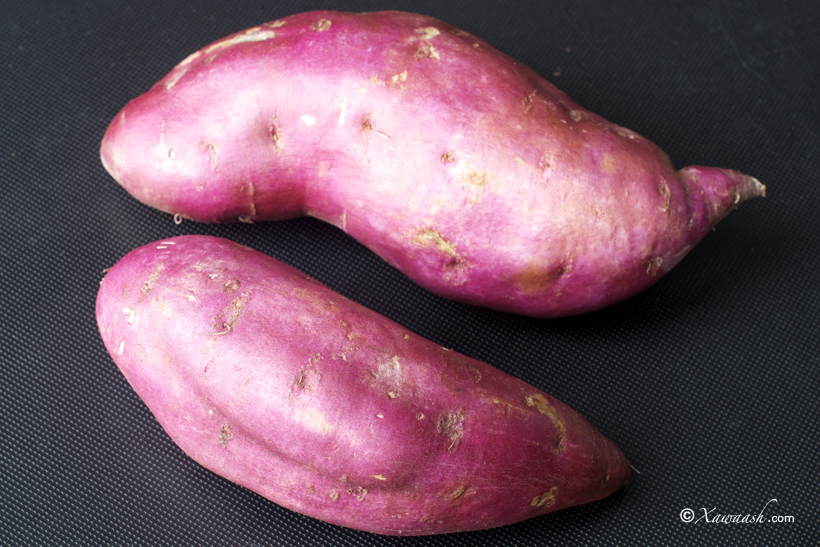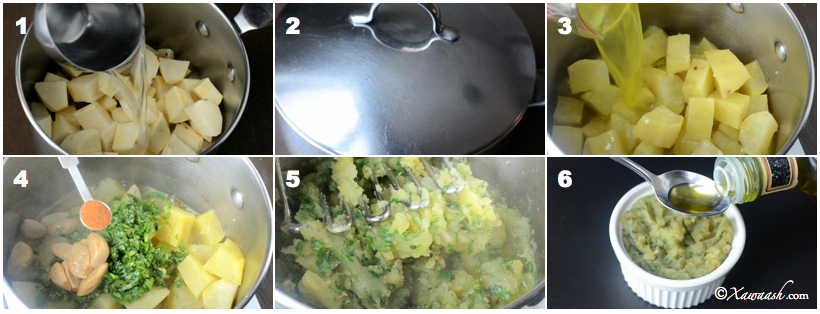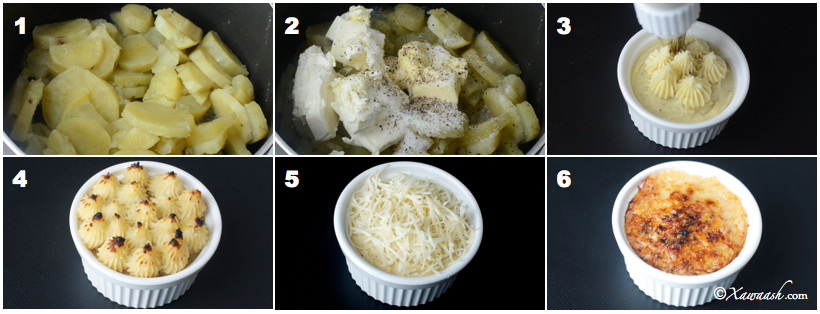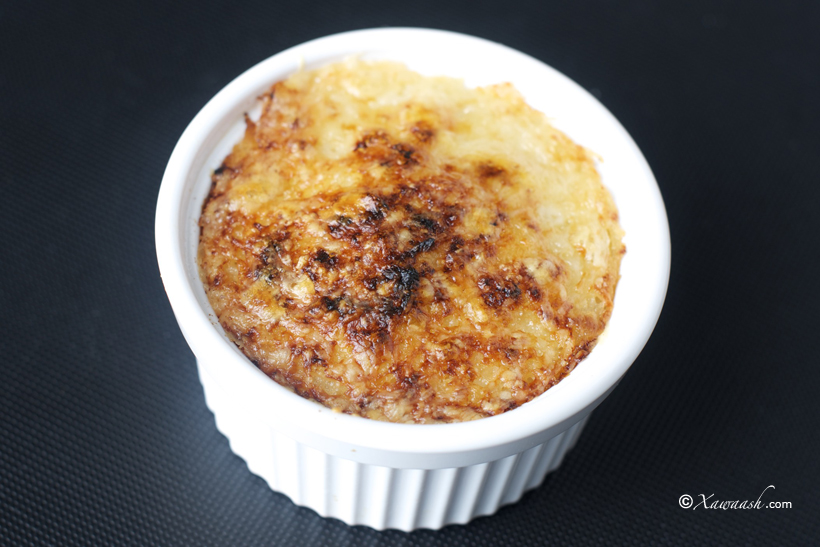Ayeeyo (grandma) Ebla used to plant them. She was my great grandmother and she was a nomad, a transplanted nomad. Put her anywhere and she would thrive, a true survivor. I never met her but I have a lot of respect for her. How can you not respect someone who was born a nomad, raised a nomad, yet quickly adapts to settled life and takes up gardening as if her life never depended on it?
Whenever mother cooked food for us, she would tell us a story and open a window into her childhood. She told us how ayeeyo Ebla dug holes in the sandy soil of Wardhigley (district in Mogadishu) while she and her little brother stayed two steps behind and placed small sweet potatoes in the holes. Ayeeyo planted sweet potatoes, beans, watermelons, tomatoes, and corn, enough for her family as well as some of her neighbours. Land was plentiful those days and most everyone planted a little something.
We have also taken up gardening, continuing ayeeyo Ebla’s tradition. We haven’t seen many Somalis growing food in the diaspora and that is quite unfortunate. Ayeeyo Ebla had every excuse any of us could ever come up with. She fled from the dervishes and trekked on foot for nine months from the hinterland of Eyl to the outskirts of Mogadishu, a journey of more than 1,000 kilometres. There were a few hurdles along the way, including the routine self-delivery of a baby girl, my grandmother, ayeeyo Isnino Egal Hirsi. The first thing the newborn saw was the acacia tree that she was born under, one among many, as unremarkable as the day she was born.
Ayeeyo Ebla boiled her sweet potatoes, and that was supper. It was a welcome respite from the almost nightly appointment with ambulo (boiled adzuki beans). Other nights, she would boil baby watermelons which mother remembers as sweet, sweet, and sweet.
The stories about ayeeyo Ebla weren’t just about the hardships she went through. The ones that I liked best were those that described her fun-loving spirit. She loved to sing and dance and a single tap on a haan drum would perk up her ears and alter the rhythm of her heartbeat. In the countryside, unmarried nomadic women would venture out after dark carrying the haan drum. A few taps would draw the young men like a moth is drawn to a flame. Song, poetry, dance, showmanship, and courtship (shukaansi). That is how women were courted.
In Mogadishu, she was reunited with her husband Egal, whom she hasn’t seen for many years after they were separated by the conflict. Married, she still responded to the call of the drum, to the rhythm of life. How do you repress that which is not under the control of the will? How do you retire fun?
The other women would say to her, “Leave, before Egal finds out that you are here!”
Dancing, she would sing:
Casarkii baan darfacas dhigay
Cishihii baan anfaco siiyay
Cadaab ma’arkihii Cigaal
Ceeblooy asagaa ciyaar yiri
I spread an ornate, woven mat,
when the sun cooled down.
Gave him a nourishing
meal, later at night
It was faultless Egal who said:
“Ebla, you may sway and dance.”
My mother remembers ayeeyo Ebla’s infectious laughter as she admitted that the last line wasn’t an accurate description of what awoowe (grandpa) Egal said. In fact, it wasn’t even close!
She was Ebla Mahamoud Elmi “Digey”, and she was sweeter than the sweetest sweet potato.
Ingredients:
(Tbsp is a tablespoon; tsp is a teaspoon)
(1 cup = 237 mL = 2.4 dl; 1 Tbsp = 15 mL; 1 tsp = 5 mL); all are level measurements
Healthy Mash:
- 1½ lb (680 g) Sweet potatoes – White flesh
- 1 cup (237 mL) Water
- ½ cup (118 mL) Vegetable stock
- ½ cup (80 g) Cilantro (chopped)
- 6 Garlic cloves (roasted) – Optional
- ¼ tsp (1.25 mL) Cayenne pepper
- 2 tsp (10 mL) Olive oil
Creamy Mash:
- 1½ lb (680 g) Sweet potatoes – White flesh
- 1 cup (237 mL) Water
- 4 Tbsp (60 mL) Unsalted butter
- 5 oz (140 g) Cream cheese
- ½ tsp (2.5 mL) Salt
- 2 tsp (10 mL) Sugar
- ¼ tsp (1.25 mL) Ground black pepper
- Cheese (grated) – Optional
Directions:
- Peel the potatoes and cut into 1″ (2.5 cm) cubes. Place in a pot and add the water.
- Cover and cook on medium heat for 15 minutes until fork tender.
- Add the stock.
- Add the chopped cilantro, roasted garlic, and cayenne pepper. If you don’t want too spicy, use just a pinch of cayenne or replace with ground black pepper.
- Mash the potatoes. If it is too thick, add a little stock. Do not use a food processor! You will end up with a gluey mush.
- Transfer to ramekins or a baking dish. Drizzle a little olive oil on top and broil for 10 minutes. If you wish, you can skip this step and serve the mash immediately.
Directions:
- Peel the potatoes and cut into 1″ (2.5 cm) cubes. Place in a pot and add the water. Cover and cook on medium heat for 15 minutes until fork tender.
- Add the butter, cream cheese, salt, sugar, and black pepper.
- Transfer to ramekins or a baking dish. Use a decorating bag and tip to fill the ramekins. You can skip this step and serve the mash immediately.
- Broil for 10 minutes.
- OR: Transfer to ramekins or a baking dish and sprinkle some grated cheese on top. You can skip this step and serve the mash immediately.
- Broil for 10 minutes.
Ayeeyo Ceebla ayaa bataatada (baradhada) macaan beeran jirtay. Waxay ii ahayd ayeeyo labaad, waxayna ahayd reer miyi oo magaalo soo degtay. Meel kasta ay aaddo way la qabsan jirtay, dhibaato kastana way ka hor tagi jirtay. Aniga kuma soo gaarin laakiin waxay iga mudan tahay ixtiraan iyo qaddarin. Sideen u ixtiraami karin qof baaddiye ku dhalatay kuna kortay oo markay magaalada timid horey kala qabsatay, beerna falatay inay nolosha reerkeeda ku wanaajiso?
Hooyo markay cunto inoo kariso, waxay inoo sheegi jirtay sheeko. Sheekooyinkaas waxay badi ku saabsanaayeen nolosheeda markay yareed. Waxay inooga sheekeysay in ayeeyadeed Ceebla ay wax beeri jirtay markay Wardhiigley degganaayeen. Hooyo iyo abtigay oo markaas aad u yaraayeen ayaa ayeeyo kaalmeyn jireen oo abuurka dhulka ku ridi jireen. Ayeeyo Ceebla waxay beeri jirtay bataato macaan, digir, qare, yaanyo iyo galleey. Wixii reerka ka batana, waxaa la siin jiray deriska. Waagaas dhulka wuu iska bannaanaa, dadka badidoodna waxbay beeran jireen.
Annagana gurigeenna deedkiisa ayaan wax ku beerannaa, annagoo raacayna tusaalihii ayeeyo Ceebla. Qurbaha kuma aynaan arag Soomaali wax beeranaysa, hadday jiraanna aad ayay u yar yihiin. Cudurdaarrada way fara badan yihiin, dhibaatooyinka qurbahana ma yare, laakiin ayeeyo Ceebla dhibaatooyinka soo foodsaaray kama aysan reebin inay wax qabsato. Waxay kasoo qaxday baadiyaha Eyl waqtiga Sayyidka, waxayna u lugaysay magaalada Xamar. Wuxuu ahaa safar 1,000 kiloomitir ka badan wuxuuna ku qaatay sagaal bilood. Safarkaas ayadoo ku jirta, ayaa waxay geed hoostiisa ku dhashay ayeeyaday Isniino Cigaal Xirsi. Kaddib waxay gaartay magaalada Xamar ayadoo waxba heysan. Waxay ku bilowday inay dadka qoryaha iyo cawska u qaaddo ilaa ay reerkeeda dejisay iskuna filnaadeen. Awoowe Cigaal oo ay kala habaabeen, ayay sanado kaddib Xamar isku arkeen.
Ayeeyo Ceebla bataatada macaan biyo ayay ku karin jirtay, reerka ayayna casho uga dhigi jirtay. Cashada waxay badi ahaan jirtay cambuulo, maalinta bataatada la sameeyana cambuulada ayaa laga nasan jiray. Waxaa kaloo ay biyo ku karin jirtay qaraha aadka u yaryar, oo ay hooyo xasuusato inuu aad u macaanaa.
Sheekooyinka nalooga sheekeeyay ayeeyo Ceebla kuma koobnayn dhibatooyinka ay la kulantay. Sheekooyinka aan aadka u jeclaa waa kuwa ku saabsanaa farxaddeeda iyo sida ay caweyska u jeclayd. Waxay ahayd qof jecel hees iyo ciyaar. Baaddiyaha habeenkii ayaa ciyaar laysugu soo bixi jiray oo gabdhaha ayaa durbaan soo qaadan jireen. Haan afkeeda intay maqaar saaraan, dhinacyada ka jiidaan, ayay kaddib xarig ku xiri jireen. Markay durbaanka garaacaan ayaa dhalinyarada soo bixi jireen, dheeshana meeshaas ka bilaaban jirtay. Haweenka xaasaska ah kama aysan qayb gali jirin ciyaartaas.
Xamar markay timid, kama aysan harin ciyaarta iyo heesaha. Waxaa lagu dhihi jiray, “Meesha isaga tag intuusan Cigaal ushiisa la imaanin!” Ayadoo ciyaaraysa ayay ku jawaabi jirtay:
Casarkii baan darfacas dhigay (darfacas: darin aad u qurux badan oo midabbo leh)
Cishihii baan anfaco siiyay (anfaco: cunto)
Cadaab ma’arkihii Cigaal
Ceeblooy asagaa ciyaar yiri
Hooyo waxay xasuusataa ayeeyo Ceebla inay qosol la dhacday markay sheekadaas u sheegtay. Ayeeyo way ogayd inuu awoowe Cigaal uusan dhihin ciyaar. Awoowana ushiisa wuu soo dhowaysan jiray.
Magaceeda buuxa wuxuu ahaa Ceebla Maxamuud Cilmi “Digay”, waxayna ahayd ayeeyo aad qaali u ah.
Maqaaddiirta:
(QW waa qaaddo weyn – midda cuntada lagu cuno; qy waa qaaddo yar)
(1 koob = 237 mL = 2.4 dl; 1 QW = 15 mL; 1 qy = 5 mL)
Maash Caafimaad Leh:
- 1½ baawun (680 g) Bataato macaan
- 1 koob (237 mL) Biyo
- ½ koob (118 mL) Maraq qudaar
- ½ koob (80 g) Kabsaro caleen (jarjaran)
- 6 Tuun (toon) (la foorneeyay)
- ¼ qy (1.25 mL) Basbaas kaayeen
- 2 qy (10 mL) Saliidda oliifada
Maash Nafaqeysan:
- 1½ baawun (680 g) Bataato macaan
- 1 koob (237 mL) Biyo
- 4 QW (60 mL) Buuro aan cusbo lahayn
- 5 oz (140 g) Farmaajo kareemo leh
- ½ qy (2.5 mL) Cusbo
- 2 qy (10 mL) Sokor
- ¼ qy (1.25 mL) Filfil madoow shiidan
- Farmaajo / burcad (la xoqay)
Diyaarinta:
- Bataatada (baradhada) fiiq, kaddibna u jarjar qiyaas 1″ (2.5 cm). Digsi ku rid, biyahana ku dar.
- Dabool oo dab dhexdhexaad ah ku kari muddo 15 daqiiqo ilaa ay ka bislaato.
- Maraq qudaarta ku dar. Waxaa ku beddeli kartaa maraq digaag.
- Ku dar kabsaro caleenta, tuunta la kariyay, iyo basbaas kaayeen. Haddaadan basbaas jeclayn, waxaa ku beddeli kartaa filfil madoow oo shiidan.
- Bataatada si fiican u burburi. Haddey adkaato xoogaa maraq ku dar. Ha isticmaalin khallaad (blender)! Bataatada wuxuu ka dhigaayaa dhegdheg aan la cuni karin.
- Ku rid weel foornada la gelin karo. Saliid yar korka uga shub, kaddibna foornada ku gaduudi muddo 15 daqiiqo. Bataatada waa la cuni karaa aydoon la gaduudinin.
Diyaarinta:
- Bataatada (baradhada) fiiq, kaddibna u jarjar qiyaas 1″ (2.5 cm). Digsi ku rid, biyahana ku dar. Dabool oo dab dhexdhexaad ah ku kari muddo 15 daqiiqo ilaa ay ka bislaato.
- Ku dar buurada, farmaajada kareemada leh, cusbada, sokorta, iyo filfisha madoow.
- Ku rid weel foornada la gelin karo. Isticmaal kiishka qurxiska (decorating bag) iyo dublad (decorating tip). Haddaad doontid, tallaabadaan waa ka boodi kartaa oo horey ayaa maashka ka qaddimi kartaa.
- 10 daqiiqo foornada ku gaduudi.
- AMA: Ku rid weel foornada la gelin karo. Farmaajo la xoqay korka uga dar. Haddaad doontid, tallaabadaan waa ka boodi kartaa oo horey ayaa maashka ka qaddimi kartaa.
- 10 daqiiqo foornada ku gaduudi.
Ayeeyo (grand-mère) Ebla plantait des patates douces. Elle était mon arrière grand-mère et elle était nomade, une nomade transplantée. Où qu’elle soit, elle prospérait, une véritable survivante. Je ne l’ai jamais rencontrée mais j’ai beaucoup de respect pour elle. Comment ne pas respecter quelqu’un qui était née nomade, avait grandi nomade, mais s’est adaptée rapidement à la vie sédentaire et s’est mise à jardiner comme si sa vie n’en dépendait pas?
A chaque fois que ma mère préparait à manger, elle nous racontait une histoire et ouvrait une fenêtre sur son enfance. Elle nous racontait comment ayeeyo Ebla creusait des trous dans le sol sablonneux de Wardhigley (district de Mogadishu) pendant qu’elle et son petit frère se tenaient deux pas derrière et mettaient des petites patates douces dans les trous. Ayeeyo cultivait des patates douces, des haricots, des pastèques, des tomates, et du maïs, assez pour nourrir sa famille et quelques voisins. La terre était fertile en ces temps là et pratiquement tout le monde plantait quelque chose.
Nous avons aussi fait un jardin potager, pour continuer la tradition d’ayeeyo Ebla. Nous n’avons pas vu beaucoup de Somalis qui jardinent dans la diaspora et c’est vraiment dommage. Ayeeyo Ebla avait toutes les excuses qu’on puisse imaginer. Elle avait fui les derviches et avait marché pendant 9 mois de l’arrière-pays d’Eyl jusqu’à la banlieue de Mogadishu, un voyage de plus de 1000 kilomètres. Elle surmonta des obstacles sur son chemin, comme mettre au monde par elle-même sa fille, ma grand-mère, ayeeyo Isnino Egal Hirsi. La première chose que le nouveau-né vit était l’acacia sous lequel elle naquit, un parmi tant, aussi banal que le jour de sa naissance.
Ayeeyo Ebla faisait bouillir ses patates douces, et elle avait son dîner. Un répit bienvenu du menu quotidien d’ambulo (haricots adzuki bouillis). D’autres soirs, elle faisait bouillir des petites pastèques, ma mère se rappelle qu’elles étaient sucrées, sucrées, sucrées.
Les histoires d’ayeeyo Ebla ne parlaient pas que des épreuves de sa vie. Mes préférées sont celles qui décrivent son esprit enjoué. Elle aimait chanter et danser et un seul coup sur le tambour haan lui faisait dresser les oreilles et battre son coeur. A la campagne, les femmes nomades non mariées sortaient la nuit tombée portant un tambour haan. Dès qu’elles commençaient à jouer les jeunes hommes étaient attirés comme des papillons par une flamme. Chanson, poésie, danse, spectacle, et séduction (shukaansi). Les femmes étaient ainsi courtisées.
A Mogadishu, elle a retrouvé son mari Egal, qu’elle n’avait pas vu pendant des années après qu’ils furent séparés par le conflit. Même mariée, elle répondait toujours à l’appel du tambour, au rythme de la vie. Comment réprimer ce qui ne dépend pas de sa volonté? Comment arrête-t-on de s’amuser?
Les autres femmes lui disaient: “Vas-t’en, avant qu’Egal n’apprenne que tu es là!”
En dansant, elle chantait:
Casarkii baan darfacas dhigay
Cishihii baan anfaco siiyay
Cadaab ma’arkihii Cigaal
Ceeblooy asagaa ciyaar yiri
J’étale un tapis tressé décoré,
Quand le soleil s’est radouci.
Je lui ai donné un repas nourrissant,
plus tard dans la soirée,
c’est Egal le droit qui me dit:
“Ebla, tu peux aller te déhancher et danser.”
Ma mère se rappelle du rire contagieux de ayeeyo Ebla quand elle avoua que la dernière phrase n’était pas exactement ce que awoowe (grand-père) Egal avait dit. En fait, c’était très loin de la vérité!
Elle s’appelait Ebla Mahamoud Elmi “Digey”, et elle était plus douce que la plus douce des patates douces.
Imprimer la Recette avec Photos
Ingrédients:
(cs est cuillère à soupe; cc est cuillère à café)
(1 mesure = 237 mL = 2.4 dl; 1 cs = 15 mL; 1 cc = 5 mL); mesures à ras
Purée Simple:
- 1½ livre (680 g) de Patates Douces à chair blanche
- 1 mesure (237 mL) d’Eau
- ½ mesure (118 mL) de Bouillon de Légumes
- ½ mesure (80 g) de Coriandre (haché)
- 6 de Gousses d’Ail (rôties) – optionnel
- ¼ cc (1.25 mL) de Piment de Cayenne
- 2 cc (10 mL) d’Huile d’Olive
Purée Crémeuse:
- 1½ livre (680 g) de Patates Douces à chair blanche
- 1 mesure (237 mL) d’Eau
- 4 cs (60 mL) de Beurre Doux
- 5 onces (140 g) de Fromage Frais
- ½ cc (2.5 mL) de Sel
- 2 cc (10 mL) de Sucre
- ¼ cc (1.25 mL) de Poivre Noir moulu
- Fromage (râpé) – optionnel
Instructions:
- Peler les patates et les couper en cubes de 1 pouce (2.5 cm). Les mettre dans une casserole et ajouter l’eau.
- Couvrir et cuire à feu moyen pendant 15 minutes jusqu’à ce qu’elles soient tendres (piquer avec une fourchette).
- Ajouter le bouillon.
- Ajouter le coriandre haché, l’ail rôti, et le poivre de Cayenne. Si vous n’aimez pas trop épicé, utilisez juste une pincée de piment ou remplacez-le par du poivre noir moulu.
- Écraser les patates. Si elles sont trop épaisses, ajouter un peu de bouillon. Ne pas utiliser de robot ménager! Vous obtiendriez de la colle.
- Transférer dans des ramequins ou un plat. Arroser avec un peu d’huile d’olive et passer au grill 10 minutes. Si vous le souhaitez, vous pouvez sauter cette étape et servir la purée immédiatement.
Instructions:
- Peler les patates et les couper en cubes de 1 pouce (2.5 cm). Les mettre dans une casserole et ajouter l’eau. Couvrir et cuire à feu moyen pendant 15 minutes jusqu’à ce qu’elles soient tendres (piquer avec une fourchette).
- Ajouter le beurre, le fromage frais, le sel, le sucre et le poivre noir.
- Verser dans des ramequins ou un plat. Utiliser un poche à douille et incliner les ramequins pour les remplir. Vous pouvez sauter cette étape et servir la purée immédiatement.
- Passer au grill 10 minutes.
- OU: Verser dans des ramequins ou un plat et saupoudrer de fromage râpé. Vous pouvez sauter cette étape et servir la purée immédiatement.
- Passer au grill 10 minutes.
المقادير
كوب = 237 مل، ملعقة كبيرة = 15 مل، ملعقة صغيرة = 5 مل
| بوريه صحي | ||
| بطاطا حلوة | جم | 680 |
| ماء | كوب | 1 |
| مرقة الخضار | كوب | ½ |
| كزبرة | جم | 80 |
| (فص ثوم( محمّر | 6 | |
| فلفل كايين | ملعقة صغيرة | ¼ |
| زيت زيتون | ملعقة صغيرة | 2 |
| بوريه بالجبنة | ||
| بطاطا حلوة | جم | 680 |
| ماء | كوب | 1 |
| زبدة غير مملحة | ملعقة كبيرة | 4 |
| جبنة بالقشطة | جم | 140 |
| ملح | ملعقة صغيرة | ½ |
| سكّر | ملعقة صغيرة | 2 |
| فلفل اسود مطحون | ملعقة صغيرة | ¼ |
| (جبن( مبشور | ||
طريقة التحضير:
| تقشر البطاطا وتقطع الى مكعبات مقاس 2.5 سم ثم توضع في قدر ويضاف اليها الماء. | -1 |
| تغطى وتتطهى على نار متوسطة لمدة 15 دقيقة. | -2 |
| يضاف مرقة الخضار. | -3 |
| تضاف الكزبرة، الثوم، وفلفل الكايين. | -4 |
| تهرس البطاطا. يضاف قليل من مرقة الخضار اذا اصبحت كثيفة. | -5 |
| توضع في قوالب ثم ترش بقليل من زيت الزيتون وتحمر في الفرن لمدة 10 دقيقة. | -6 |
طريقة التحضير:
| تضاف الكزبرة، الثوم، وفلفل الكايين. تغطى وتتطهى على نار متوسطة لمدة 15 دقيقة. | -1 |
| تضاف الزبدة، الجبنة بالقشطة، الملح، السكر والفلفل الاسود | -2 |
| توضع فى قوالب وتزين، يمكن تقديم البوريه بدون ان تحمر فى الفرن | -3 |
| تحمر في الفرن لمدة 10 دقيقة. | -4 |
| او: توضع في قوالب ثم يضاف اليها جبنة مبشورة. | -5 |
| تحمر في الفرن لمدة 10 دقيقة. | -6 |







asalaamu calykum walaalaheyga qhaaligoow dhamaantiin waamahadsantihiin shukrran calaa waxqabadkiina wanaaga quruxda badan dhamaantiin niyadiin allaah niiyeelo jazaakallaah kheyrakum
Wacalaykum Assalaam Waraxmatullaahi Wabarakaatuh.
Aad iyo aad ayaa ugu mahadsan tahay faallooyinkaaga iyo xiriiriska joogtada ah. Wanaag iyo qayr ayaan kuu rajaynaynaa.
masha’alah, sheeko xiiso badan, wax badan ayn sugayay dhex ayey iiga go’day, aad u mahadsan tihiin walalayaal bataatiga aad u macaan yahay, diyaarin qurux badan, ilaah kheyr badan ha idin siiyo.
Waxaan rajaynaynaa inaad goor dhow samaysatid. Waxaana rajaynaynaa reerkaada inay jeclaadaan. Qayr aan la soo koobi karin ayaan Ilaahay kaaga baryaynaa. Mahadsanid.
mashalaah waa mahadsantihiin marwalbo cunto qurux badan laakiin sheekooyinka waan jeclahay luqada ingirisiga & anine ma is ku fiicnin soo maali noogaga soo dhiga asxabey kkkk
Waa ku mahadsan tahay faallada fiican walaal. Af-Soomaaliga bog dhan ayaa loo sameeyey. Masawirka hoostiisa meesha af-Soomaali ku qoran riix, sheekada iyo soo’da oo af-Soomaali ah ayaad arkaysaa.
asc wr wb aad Ayad umahadsan tahay walashay qayr ilahay ha ku siiyo. ukhtii waxaan ku waydiinayaa ma isticmali karaa baradho caadi ah jzklq
Wacalaykum Assalaam Waraxmatullaahi Wabarakaatuh.
Adigana Ilaahay qayr badan ha ku siiyo walaal. Baradhada caadiga ah waa isticmaali kartaa haddaad jeceshahay.
waxan rabaa taloyin badan oo ku sabsan nolosha
Waxa aad na weydiinaysid haddaan aqoon u leenahay waan kaaga jawaabeynaa. Walaalahaa ayaan nahay, waxbana kaama hagraneyno, wax isweydiin na maxuma. Yar iyo weynba talo waan isku leennahay.
waad ku mahadsantihiin faalada fiican ee aad nasiisan
Adigaa mahadda mudan walaal.
this is a good recipe
Yes, we like it too.
Asalamu aleykum A and L,
I love the stories and the background information that you post with recipes. This one in particular, was very interesting as it showed me that we are related!. Your grandmother’s name brought back childhood memories and stories that my father used to tell us. My grandfather, as young orphan, was part of families who fled the dervishes under the leadership of your great grandfather and his uncle Egal. I’ll try this recipe as it seems easy and kid friendly.
Wa’alaikum Assalam Warahmatullahi Wabarakatuh.
It is great to know that you enjoyed reading the stories along with the recipe. It is important that each one of us gathers our family history before they are lost forever. We hope that you and all the family are doing well.